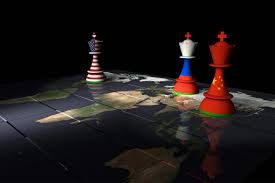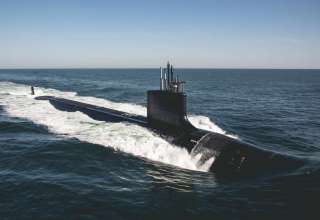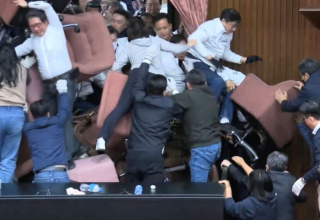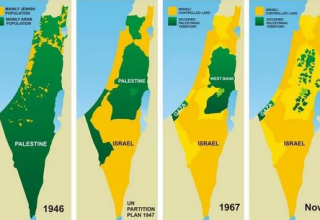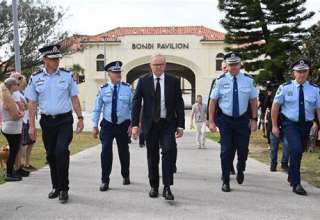A Commentary…
By Brian Boyd, October 2022
This is the first of a three part-series that looks into current geo-politics and what it means for Australia.
The election of an ALP federal government in May 2022 may have changed the optics of Australia’s status in the world but not the essence of it. The key issue of real national sovereignty and being a true independent middle power remains a fundamental question.
Australia needs to find a sovereign, realistic position within growing geo-political tensions. A crisis is emerging as a product of intensifying great power rivalry and the clashing of economic ‘spheres of influence’. Do we deserve to be caught in any crossfire between rival superpowers? Do we deserve to be dragged into any disastrous war resulting from a geo-political shake down, resulting from a ‘multipolar world order’ re-set, challenging US hegemony?
Australians deserve honest, factual information from the federal government, regarding the constant ‘war’ talk and claims of emerging and potential military threats and foreign interference that could be impacting on Australia.
Australia, like any other country, deserves an effective, independent defence policy and defence infrastructure that is designed to protect our island continent and genuine national interests. This defence strategy cannot continue to be just an extension of the US superpowers’ worldwide economic and military footprint. Our ADF should not be structured to be a “ perfectly groomed niche supplements to US forces”.
In the last week of July Prime Minister Albanese said: “We live in an era of strategic competition and a significant change in what is occurring in our region… Getting our thinking, our planning, our public discourse right under the circumstances is a non-trivial exercise… We don’t want military conflict that’s why we need to do everything we can to avoid it”.
Back in June the Australian Defence Minister Richard Marles said that our region was facing its “most complex set of strategic circumstances”, since the end of World War II. He went on to suggest that Australia should “contribute to an effective balance of military power, and ensure our region remained stable, peaceful and prosperous”.
When meeting with Indonesian President Joko Widodo around the same time, PM Albanese expressed the view that there should be “competition without catastrophe” between the US and China in the region adding, “strategic competition in the region must be well managed to avoid open conflict. The culture of peace and strategic trust needs to be strengthened continuously”.
These are important sentiments, with their emphasis on achieving ‘peace’ rather than ‘open conflict’ as the rest of the 21st century unfolds.
Do these and similar comments hint at the possibility of a more independent foreign policy approach by Australia?
The ‘elephant in the room’ is that Australia, for decades, has been viewed as a “side kick” and “deputy sheriff” of the United States. Governments of all persuasions in Canberra, have displayed an almost ‘craven and unquestioning’ cringe to most things U.S., especially going to war.
Since World War II Australian governments have followed the US into most wars it has waged, no matter where. The US became the unrivalled, worldwide superpower over 30 years ago. Its global imperialist hegemony now covers most of the planet, with Australia within it.
Where Australia fits into the American current campaign to maintain and extend its economic power, deserves to be explored by the wider Australian public. Currently the monopoly media is pushing simplistic binary choices, when it comes to the ever-increasing tensions arising from the great power rivalries.
Besides the war of words, so far, between the US and China, Russia, Britain and the emerging ‘federated’ EU, all are vying for economic expansion wherever they see an opportunity.
Many Australian politicians uncritically accept the historic links with the US, as defining our place in world affairs. Key politicians, selected journalists and think tanks, specialise in promoting the idea that Australia faces perpetual threats and that war is inevitable. A confected reality, based on the ‘threat’ narrative, is constantly repeated by these, already in place, ‘agents of influence’, without any concrete evidence of actual subversion or planned attacks on Australia, being publicly provided.
There is nothing unpatriotic in questioning why Australia has to continue to follow the US into its wars, or to look for ways to define Australia’s interests by seeking peaceful solutions.
ECONOMICS VS NATIONAL SECURITY
Some commentators do touch on the core bases of the rising global tensions. One recently wrote that geo-economic, trade, commercial and investment issues are being ‘played out,’ as “cross-cutting” into national security concerns. The commentator went so far as to suggest: ‘’ However, governments must be careful in applying national security principles to economic decision-making”. He went onto argue that the emphasis should be on ‘diversification’ and ‘openness’, accepting that “closing off economic links with every untrusted [trading] partner is unrealistic and corrosive of the international economic system”.
Back in 2021 a commentator in the New York Times reminded readers- “…it’s great power conflicts that give us enormously destabilising world wars”. He went on to note that for at least five years, “the US and China have been stumbling down a path of de-integration and maybe towards outright confrontation”, suggesting that “the changing make-up” of China’s economy is “largely responsible for this reversal”.
He went on to write: “The “world became a more dangerous and less prosperous place because of the breakdown in US-China relations”. He expressed concern that the US may be ‘in transition from competition to confrontation’, with China.
Australia is entitled to have concerns about some of the economic and trade behaviour of China. We should take the appropriate steps to protect our industries and commercial operations, with all countries we trade with. Yet the ‘war drum’ collective, centred in Canberra and sections of the media, is suggesting the consequences of China’s rapid economic growth, justifies planning for actual conflict within five years or less!
Currently both the Australian Defence Force and the Australian intelligence establishment, are so beholden and enmeshed in the US global military footprint, that our ability to have an independent foreign policy, is totally compromised and almost non-existent. Australia should not be limited to being a minor player in world events, because of this self-imposed restriction. We should not accept the inevitability of subservience to US foreign policy. We are entitled to examine the ingredients and impositions of the alliance with the US and their potential consequences.
SPHERES OF INFLUENCE
Australia should not have to be forced into making simplistic choices between the superpowers or going to war over what is essentially economic competition, when the tectonic plates of the respective ‘spheres of influence’ of the great powers, collide.
In discussions with India in late June, Defence Minister Marles gave due recognition to the ‘intensifying strategic and geo-political contest’ in the world and raised the issue of the return to war in Europe, with the imperialist Russian invasion of the Ukraine.
Marles said this war ‘demonstrates what happens when [the] rules are pushed aside.’
Comments by the Pope in Rome at the time went further. While rightly condemning the war outright, he emphasised the invasion was “some way provoked” and “facilitated” by NATO activities, “barking at the gates of Russia…They don’t understand that the Russians are imperial and can’t have any foreign power getting close to them”.
The Pope went on to say he was “against reducing the complexity of [the conflict] to a distinction between good and bad”, suggesting ‘larger geopolitical power plays…were fuelling an unnecessary conflict’.
The wrongful invasion of the Ukraine is an illustration of a worst case scenario when the economic aspirations of great powers, through defending or extending their self-defined ‘spheres of influence’, overlap and test each other’s respective footprints.
The mercantilist trade behaviour of both China and the US today has the characteristics of an evolving economic collision. This development should not be accepted as an excuse for the military build ups and constant ‘war talk’.
At the G7 meeting in late June the US laid out plans for the investment of hundreds of billions of dollars for infrastructure projects in developing countries, as part of countering similar programs currently run by China, (eg: the Belt and Road Initiative). The US economic initiative, is a rebranding of the original Build Back a Better World scheme started by US president Biden, after coming to office.
The new US $200 billion scheme is now entitled Partnership for Global Infrastructure, with President Biden saying: “In our deeply connected world, that’s not just a humanitarian concern, it’s an economic and security concern for all of us…”.
The group of G7 leaders, while recognising that the Russian invasion of Ukraine had “upset the norms”, also addressed China’s expanding “economic practices”, deeming them for the first time as a ‘strategic challenge to the existing world order’.
One commentator said the G7 was trying to create an “economic and political block” to compete with the blocs being pursued by China and Russia.
The commentator went on to suggest that the US and EU blocs were “positioning themselves for prolonged competition”, as China and Russia wanted “to create a new power structure in the world”.
Current US Secretary of State Anthony Blinken makes no secret of the US position on the question of supporting the current ‘international rules based order’, which is to “make the world work the way we want it to”.
Even the Arctic region, shrinking under global warming, has become a target for great power competition. The US has announced an “ambassador-at-large” for the Arctic to oversee its interests in commercial exploitation of the areas “vast oil and mineral resources”. Russia, meanwhile, has established a new “Arctic Command”, which has seen already hundreds of new and former Soviet-era military sites, including airfields and deep-water ports, opened up. While China has said it is interested in building a “Polar Silk Road”, aimed at exploiting new shipping routes and providing access to mineral resources.
In essence, the global geo-political scenario is one of constant moves to define and redefine the economically based ‘spheres of influence’ that all the great powers are determined to achieve.
Australian Prime Minister Anthony Albanese, commenting at the time, said: “It has been a reminder that Australia, while we are an island continent…[with the]…globalisation of our economy, the labour market, of the whole way in which the world functions, means any pretence of being isolated from world events is not just realistic”.
What PM Albanese says is essentially true. But it is where this broad understanding of ‘how the world works’ takes Australia, is the crucial issue.
EVOLVING LANGUAGE
The language and narrative around the global shakedown between the ‘spheres of influence’ of the great power blocs, is changing continually.
In the lead up to the recent NATO summit, Secretary-General Stoltenberg said China was “openly contesting the rules-based international order… We don’t regard China as an adversary, but we need to realise that the rise of China makes it important for us also to address that”.
NATO however went on to formally classify China as a challenge to the organisation’s interests, security and values, at the same time as it moved towards a war footing in Europe, to combat the ongoing threat to its east from Russia.
A commentator noted just how much attention the US and the EU at the NATO summit spent on deliberating about “security problems” in Australia’s region. He went on to comment that there seemed to be “a deepening international response to the convergence of strategic risks across the Euro-Atlantic and the Indo-Pacific”.
The US at the summit, insisted that “the world is now a single theatre of strategic and ideological competition”. This view was apparently not accepted by every country, with the commentator noting “… Of course there are differences between Russia’s murderous recolonization [of the Ukraine] and China’s many shades of coercion…”.
NATO complained that China “employs a broad range of political, economic and military tools to increase its global footprint and project power, while remaining opaque about its strategy, intentions and military build-up”.
The Russian ‘Ukraine blunder’ is seeing the collective nations of Europe investing more in their own defence, with the US nuclear deterrent still in place. “This will free up Washington to concentrate more on countering China”, the commentator speculated.
2022 is now being described as “a defining year” for global geopolitics.
The world is said to be moving away from “the small wars of terrorism” and moving into a “new world of big state wars”. The nuclear armed US and the key nation states of the EU economic bloc are said to being manoeuvring to face off against the two nuclear superpowers of Russia and China.
Britain’s new army chief recently said that while the EU, Britain and the US are not actually at war yet, suggesting steps must be taken to ensure “that we aren’t drawn into one through a failure to contain territorial expansion”.
A US State Department official described the NATO decision to put more US forces further east in Europe as: “We’re going to defend the line”.
NATO’s decision to ‘call out’ the China challenge in Australia’s Indo-Pacific region, has moved the issue “to the centre of global geopolitics”.
This has led to a number of countries in South-East Asia and the South Pacific to express “fear the militarisation of their regions…could spill over into a great power confrontation”.

